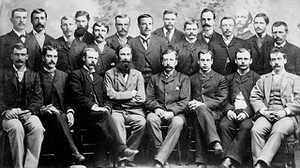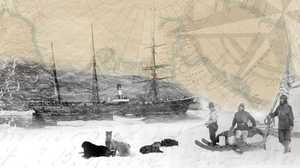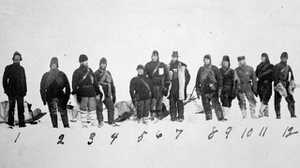Biography: Adolphus Greely

Adolphus Greely was the commanding officer of the doomed Lady Franklin Bay Expedition from 1881-1884. Born on March 27, 1844 in Newburyport, MA, he joined the United States Army at the age of 17 during the American Civil War.
In 1867, he joined the U.S. Signal Corps after being promoted to Lieutenant. In this capacity, he worked on the new telegraph network that was being implemented nationwide, and he developed a keen interest in weather systems.
In 1881, Greely volunteered to lead the Lady Franklin Bay Expedition team to the Arctic Circle. Greely had no previous command experience in extreme weather conditions. However, Greely was notorious for his rigid manner and emphasis on military discipline. Over the course of the three years that he and his team were left abandoned in the Arctic, Greely's strict command helped keep the expedition alive. It was not until the final six months of the mission, when rations had shrunk to nearly nothing, that order within the camp began to break down. After one man stole food, Greely ordered his execution to send a message to the others. By June 1884, when rescuers finally arrived, Greely and his six surviving crewmembers were on the verge of death, having survived that long by eating moss, candle wax and animal droppings.

Upon his return to the United States in August 1884, Greely met with a mixed public reception. Rumors of cannibalism and inhumane treatment under his command tainted his image. In 1887, Greely was promoted to Chief Officer of the Signal Corps, where for 20 years he helped expand the weather notification service and laid telegraph cables from Alaska to Cuba. In 1906, he commanded the emergency relief response following the San Francisco earthquake. At the age of 64, he retired from military duty. On March 21, 1935, Greely received the Congressional Medal of Honor for his extensive career in public service. He died on October 20, 1935.









